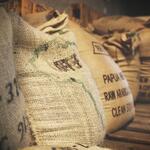- Date: 21 October 2021
- Author: Jason Clay, SVP, Markets & Executive Director, WWF Markets Institute
Trade is fundamental to well-functioning economies. It’s also critical for sustainability and for building more resilient food systems that can address the variability of the COVID-19 pandemic in the short term, but also for the chronic and urgent weather shifts from climate change. One might not realize it, but up until recently, food was mainly produced, sold, and consumed locally.
While that’s mainly still the case, since 2000 the amount of food traded grew from 6% to 20-25% in 2019. Trade fills gaps during bad years. And while we’ve clearly seen it can experience disruptions, trade also allows countries to achieve food security even, or especially, when what they do best is not food production. Many countries use food exports as a key part of their economy, like Brazil. China also generates a lot of food globally as does the US, though it’s a much smaller part of the economy.
So how do we monitor and govern food traded across international borders? Short answer, it’s complicated.
